Recent Blog Posts
Premises Liability: Understanding the Distraction Exception to the Open and Obvious Rule
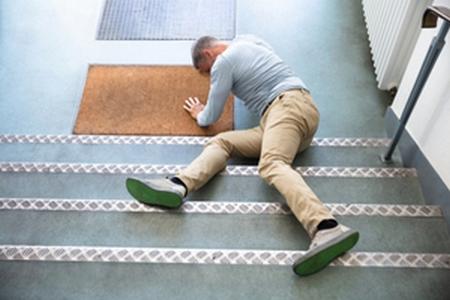 Property owners have certain obligations under Illinois Law. They must create a safe environment free of dangerous conditions for all who enter the premises. If a visitor is injured by a hazard on their property, they may be liable under Illinois premises liability law.
Property owners have certain obligations under Illinois Law. They must create a safe environment free of dangerous conditions for all who enter the premises. If a visitor is injured by a hazard on their property, they may be liable under Illinois premises liability law.
There are ways the property owner can escape liability. If the hazard can be considered “open and obvious”, the property owner may not be at fault. The property owner may argue that the victim should have been aware of the dangerous condition and avoided injury. However, the open and obvious rule has its own exception called “the distraction exception.”
What Is the Distraction Exception?
The distraction exception creates a cause of action against the property owner, even if the victim was injured by a hazard that was “open and obvious.”
For the rule to apply, the plaintiff must have been distracted by something else on the property. The distraction cannot be of the plaintiff’s own making. For example, if someone was harmed because they were staring at their phone while walking down the stairs, the property owner may not be liable.
Exposed to Toxic Chemicals at Work? You May Qualify for Workers’ Compensation
 According to the Bureau of Labor Statistics, over 2 million people are injured at work every year, and over 1 million people will miss work because of a workplace injury.
According to the Bureau of Labor Statistics, over 2 million people are injured at work every year, and over 1 million people will miss work because of a workplace injury.
Most of these injuries are caused by falls, slips, and collisions. However, some incidents are much more subtle; in fact, thousands of workers suffer serious harm just breathing the air around them. The culprit? Toxic gases and chemicals.
Despite advances in safety precautions and more stringent regulations, thousands of workers suffer health complications due to chemical exposure annually. According to the National Safety Council, harmful substances were responsible for over 30,000 non-fatal injuries and over 600 fatalities.
Most Prevalent Toxic Chemicals
According to the Bureau of Labor Statistics, the most dangerous workplace chemicals (by number of fatal incidents) were:
If You Were Injured in a Swimming Pool, You May Have a Legal Claim
 Going to the pool is a popular pastime for many. Unfortunately, for thousands of Americans, their time at the pool ends with more than a nice tan. According to the Pool Safety Foundation, more than 2,000 children under the age of five suffer submersion injuries every year, and many of these injuries occur at pools. Thousands of adults suffer injuries as well.
Going to the pool is a popular pastime for many. Unfortunately, for thousands of Americans, their time at the pool ends with more than a nice tan. According to the Pool Safety Foundation, more than 2,000 children under the age of five suffer submersion injuries every year, and many of these injuries occur at pools. Thousands of adults suffer injuries as well.
Victims that survive are often left with debilitating permanent disabilities, such as brain damage. They may have difficulty concentrating and recalling information, making a normal life difficult. In addition to physical injuries, victims face other challenges, such as medical debt and financial instability.
Although their situation is dire, they may have a cause of action under Illinois premises liability law. If their injuries were caused by the pool owner’s negligence, they can file a lawsuit against them. A successful suit may result in a significant financial award.
Traumatic Brain Injury and Workers’ Compensation
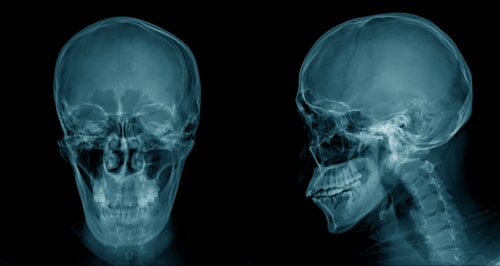 Any serious bodily injury has the potential to impact a person’s quality of life, but the implications of a brain injury are often especially severe. A traumatic brain injury (TBI) occurs when the head is struck with a force that causes the brain to bruise, bleed, or suffer damage.
Any serious bodily injury has the potential to impact a person’s quality of life, but the implications of a brain injury are often especially severe. A traumatic brain injury (TBI) occurs when the head is struck with a force that causes the brain to bruise, bleed, or suffer damage.
Common traumatic brain injuries include:
- Concussions: A blow to the head that shakes the brain. Symptoms vary considerably, ranging from mild headaches to long-term memory loss. Concussions usually heal over time.
- Brain Contusions: A bruise on the brain with concussion-like symptoms. If the bleeding subsists, surgery may be required to remove the bruised area.
- Diffuse Axonal Injuries: A serious injury that occurs when the brain is impacted so forcefully that the tissue connecting the brain to the brain stem begins to tear. It can be fatal in severe cases.
- Penetrating Injury: An object literally fractures the skull and penetrates the brain. A gunshot to the head is the most common example.
Why Are Workers Compensation Claims Denied?
 Suffering a workplace injury is frustrating. You may be unable to work, require intensive medical care, and be left with permanent disabilities. However, the situation is all the more vexing if your workers’ compensation claim is denied.
Suffering a workplace injury is frustrating. You may be unable to work, require intensive medical care, and be left with permanent disabilities. However, the situation is all the more vexing if your workers’ compensation claim is denied.
Injured workers depend on workers’ compensation benefits during their recovery. If a claim is denied, the worker may be left with mounting medical bills and other expenses. Here are three common reasons workers compensation claims are denied:
The Accident Did Not Occur at Work
In order to qualify for benefits, your injury must have occurred during work. However, this does not necessitate a specific physical location. If the injury occurred while you were performing your job duties (e.g., out making deliveries), it qualifies. This is one of the most common justifications for a claim denial. Employers and insurers looking to avoid a payout often try to argue that the worker was not “on the job” when the accident occurred.
Why Are Workers Compensation Claims Denied?
 Suffering a workplace injury is frustrating. You may be unable to work, require intensive medical care, and be left with permanent disabilities. However, the situation is all the more vexing if your workers’ compensation claim is denied.
Suffering a workplace injury is frustrating. You may be unable to work, require intensive medical care, and be left with permanent disabilities. However, the situation is all the more vexing if your workers’ compensation claim is denied.
Injured workers depend on workers’ compensation benefits during their recovery. If a claim is denied, the worker may be left with mounting medical bills and other expenses. Here are three common reasons workers compensation claims are denied:
The Accident Did Not Occur at Work
In order to qualify for benefits, your injury must have occurred during work. However, this does not necessitate a specific physical location. If the injury occurred while you were performing your job duties (e.g., out making deliveries), it qualifies. This is one of the most common justifications for a claim denial. Employers and insurers looking to avoid a payout often try to argue that the worker was not “on the job” when the accident occurred.
Do Repetitive Stress Injuries Qualify for Workers Compensation?
 When people think of workplace injuries, they often picture a worker falling off a ladder or slipping on a wet surface. However, not all workplace injuries are caused by single catastrophic event; rather, some are caused by small, repetitive actions that wear down a body part over time. These are known as repetitive motion injuries or repetitive stress injuries (RSI).
When people think of workplace injuries, they often picture a worker falling off a ladder or slipping on a wet surface. However, not all workplace injuries are caused by single catastrophic event; rather, some are caused by small, repetitive actions that wear down a body part over time. These are known as repetitive motion injuries or repetitive stress injuries (RSI).
According to the Columbia University Department of Rehabilitation and Regenerative Medicine, “Repetitive motion injuries are temporary or permanent injuries to muscles, nerves, ligaments, and tendons caused by performing the same motion over and over again.”
Although RSI could impact any part of the body, the joints in the hands, legs, neck, and feet are most at risk.
Common repetitive stress injuries include:
- Carpal tunnel syndrome
I Was Injured in a Car Accident Caused by My Friend. Can I Still File an Accident Claim?
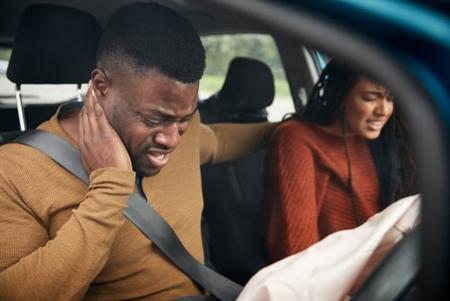 Being injured in a car accident can be a traumatic experience, especially if those injuries are serious. Not only do you deal with the pain and medical treatment that comes with those injuries, but victims also often face financial difficulties because of the cost of the medical care and lost wages from time missed from work as they recover.
Being injured in a car accident can be a traumatic experience, especially if those injuries are serious. Not only do you deal with the pain and medical treatment that comes with those injuries, but victims also often face financial difficulties because of the cost of the medical care and lost wages from time missed from work as they recover.
In most cases, when a person is injured in a car accident, there is no hesitation about filing for damages against the driver who caused that accident and is responsible for those injuries. But what happens when that driver is someone you know – a friend or family member? Should you still seek compensation? As difficult as that may seem, the answer is yes.
Car Accidents and Insurance Policies
If you are injured in a car accident caused by someone you know, you should treat it the same way you would if that driver was a stranger to you. Do not discuss the accident or any details about your injuries with them. This does not mean you cannot talk to them at all. It just means avoiding the topic of the car accident.
Illinois Lawmakers Want to Give More Power to Police in Felony Crimes Process
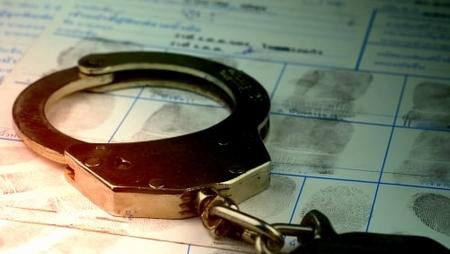 Under Illinois criminal law, when a person is charged with a serious crime, it is up to the prosecutor to take the legal steps to charge the accused with a felony crime. There are cases where a prosecutor will decide not to pursue felony charges, and the charges the police arrested the accused on are dropped, even if the police disagree with the prosecutor’s decision. However, a group of Illinois lawmakers are seeking to change all that and have recently filed legislation that would allow police chiefs to override the prosecutor’s decision.
Under Illinois criminal law, when a person is charged with a serious crime, it is up to the prosecutor to take the legal steps to charge the accused with a felony crime. There are cases where a prosecutor will decide not to pursue felony charges, and the charges the police arrested the accused on are dropped, even if the police disagree with the prosecutor’s decision. However, a group of Illinois lawmakers are seeking to change all that and have recently filed legislation that would allow police chiefs to override the prosecutor’s decision.
Felony Process
Under the current law, there is a standard process that every case must go through before a person can be charged with a felony. The first step to this process is the police investigation. If the police feel they have probable cause to charge a person they suspect of committing a crime, they will place them under arrest. In some cases, this involves obtaining an arrest warrant, while in other cases – such as during a traffic stop – the officer can arrest the individual right on the spot.
How to Check the Record of an Illinois Nursing Home
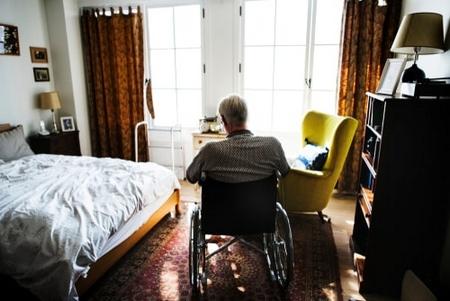 The number of elder abuse cases in this country is alarming. It is estimated that five million seniors are abused each year. One in 10 seniors over the age of 60 report having suffered at least one incident of elder abuse. One of the most common places where this abuse takes place is nursing homes. Almost 40 percent of nursing home residents report they have witnessed another resident suffer abuse of another resident within the prior 12 months, 10 percent of nursing home staff have admitted to physically abusing a resident, and 40 percent have admitted to emotionally abusing residents.
The number of elder abuse cases in this country is alarming. It is estimated that five million seniors are abused each year. One in 10 seniors over the age of 60 report having suffered at least one incident of elder abuse. One of the most common places where this abuse takes place is nursing homes. Almost 40 percent of nursing home residents report they have witnessed another resident suffer abuse of another resident within the prior 12 months, 10 percent of nursing home staff have admitted to physically abusing a resident, and 40 percent have admitted to emotionally abusing residents.
Keeping Track of Nursing Home Facilities with Track Records of Abuse and Neglect
In an effort to protect elderly residents, the Centers for Medicare & Medicaid Services (CMS) established the Special Focus Facility (SFF) program that identifies nursing homes that have very poor records of caring for residents. Once CMS has placed a facility on the SFF list, that facility must make significant improvements on the quality of care they are providing residents and to put in place best practices policies. Facilities have 18 to 24 months to make these improvements in order to “graduate” from the program and be removed from the list. If the facility fails to do so within the required time period, it faces termination from Medicare and Medicaid participation, which will likely result in the facility closing. What Deficiencies Will Place a Facility on the SFF List?
 815-727-0100
815-727-0100













